The “wellness space” seems to have boomed in the past few years. In fact, the wellness industry now accounts for over 5% of the global economic output. For health fanatics, this is already something to celebrate -- clearly the world is starting to put their dollars towards caring for their minds and bodies. But as a female-owned company, this is an even bigger deal. That’s because this industry is the largest of its size predominated by women.
In honor of International Women’s Day, we want to acknowledge some of the gr8est women in this space and highlight their work. These women are 5 of many passionate, powerful entrepreneurs who deserve recognition today (and every day) for the work they’ve done in the industry and for showing us what it really means to be a #GirlBoss.
1. Grace Beverley, Founder of TALA, SHREDDY and B_ND
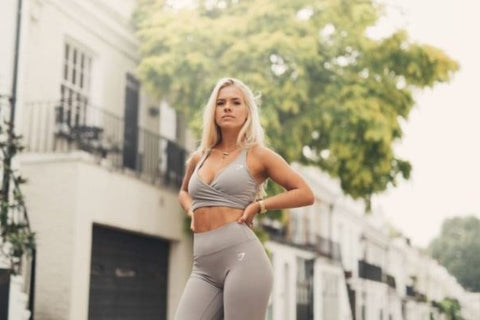
Grace Beverley is a 22-year-old who gained popularity as an online content creator. While a student at Oxford University, she founded her online brand GraceFitUK. GraceFitUK started as a YouTube channel which shared workout videos, vegan recipes, and tips on healthy living in university. Her fame originated two years ago when she released her highly successful Grace Fit Guide, a comprehensive workout plan.
In the past two years, she founded B_ND and TALA -- two brands that have taken the fitness industry by storm. Beverley’s goal is to make fit lifestyles accessible for everyone, so she preaches the ability to workout easily eat home using one of her resistance bands or following one of her SHREDDY workouts. Her most exciting recent endeavor was founding TALA, an ethnical, sustainable, and inclusive workout apparel brand that is 92% upcycled and 100% affordable. Beverley prioritizes paying her workers fairly, using sustainable materials, and reducing carbon emissions.
The coolest thing about Beverley, though? She promotes successful, self-made women through all of her content. Despite her newfound fame, she still posts down-to-earth videos like “the truth about being a young woman in business” Talk about a gr8 influence(r).
2. Elizabeth Rider, Blogger And Online Instructor
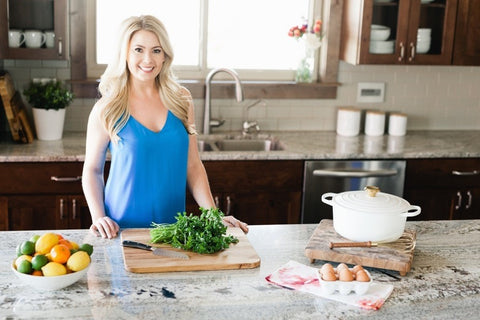
Photo: Food Matters
Elizabeth Rider isn’t your typical food blogger. She started her business through her blog, which shared healthy recipes and nutrition tips. But when her blog began to gain traction, Rider decided to create online courses to share her love for nutrition and her newfound love for entrepreneurship with women around the world. Her online courses, which include Clean Up Your Diet and The Wellness Business Bootcamp don’t just share her favorite nutrition tips, but delve into how you can be the next biggest wellness blogger, yourself.
“Seeing other women succeed lights me up, and it’s my life’s mission to help you make it happen,” Rider states on her website. We think we just found our 2020 motto.
3. Emily Cook Harris, Founder of Empowered
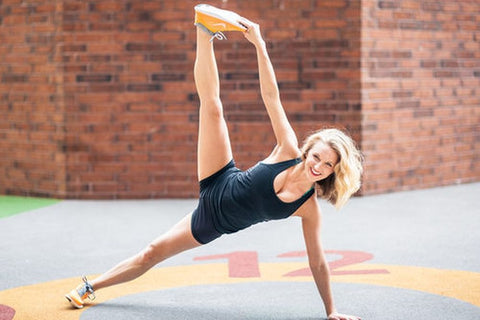
Photo: NY Racked
Emily Cook Harris created Empowered in 2010 with the goal of closing the gap between personal training and lifestyle changes. While Harris started as a professional dancer, she quickly realized that her love of dance was rooted in a deeper love for movement. She obtained a B.S. in Kinesiology and found her true passion in helping others transform their lives through movement.
Empowered designs personalized programs for clients that focus on “an entire lifestyle of health” through easy-to-implement habits rather than a quick-fix program. It began as a residential personal training program and grew into both a digital and experiential brand. Most notably, Empowered hosts a giveback initiative called FITWeek, an exercise event that has raises money for girls’ education around the world, supplies for U.S. public schools, and innovative physical education curriculums. Instead of just selling her brand to those who can afford it, Harris pays it forward by making sure that healthy lifestyles start young and are accessible to everyone, and we love her for it.
4. Emma Green, Founder of Fun Food and Fitness
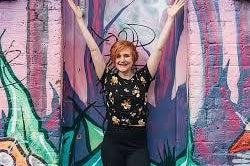
Emma Green began her journey to Fun Food and Fitness through online fitness coaching. As a certified personal trainer with a PhD in Psychology, Green is most passionate about helping people build a health relationship with food, exercise and their bodies. After living with anorexia for more than a decade, Green took her health into her own hands and learned how to escape diet mentality while enjoying fitness.
While studying for her PhD, Green began online fitness coaching. At the same time, her Instagram page gained traction through its spread of positive messages. Green quickly realized that she had the ability to spread a message that she wished she could’ve heard while she was experiencing an eating disorder, and wanted to expand her reach. Her blog now covers topics like “Non-body related compliments” and “Breaking the diet cycle” to help her readers find joy in intuitive eating practices. Green’s podcast, Fun Food and Fitness, talks openly about how people build a healthy relationship with food, exercise, and their own bodies.
5. Rachel Krupa, Founder and CEO of The Goods Mart
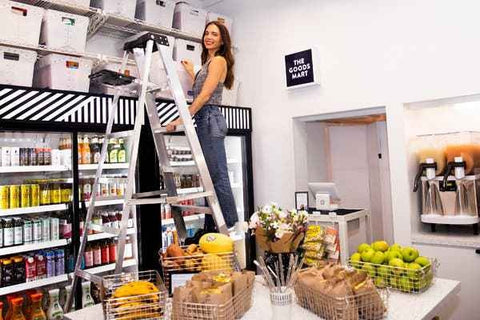
Photo: NYTimes
Rachel Krupa started her journey in the food and wellness space about ten years ago when she founded Krupa Consulting, a boutique food and wellness PR firm. After working closely with restaurants, snack brands and thought leaders in the health and wellness space, Krupa became passionate about “better food.” To Krupa, this means high quality, ethically-sourced food and products that are not only accessible, but affordable. Inspired by her local convenience stores and mini marts, Krupa decided to create her own business with these values.
The Goods Mart is a mini-mart in SoHo that fills the gap between convenience and health. “We’ve balanced accessibility with planet-friendliness,” Krupa states on The Goods Mart website, “every item we stock has been hand-curated for amazing taste or function and ethical, eco-responsible practices.” The products on The Goods Marts’s shelves will never contain artificial sweeteners, growth hormones, GMOs, or harmful pesticides. Krupa’s fundamental belief is that if people are given an accessible and affordable option to do good, they will. We’re dying to stop by and check out her stock of “ugly but good” fruits -- and maybe get a $1.85 sustainable coffee, while we’re at it.







